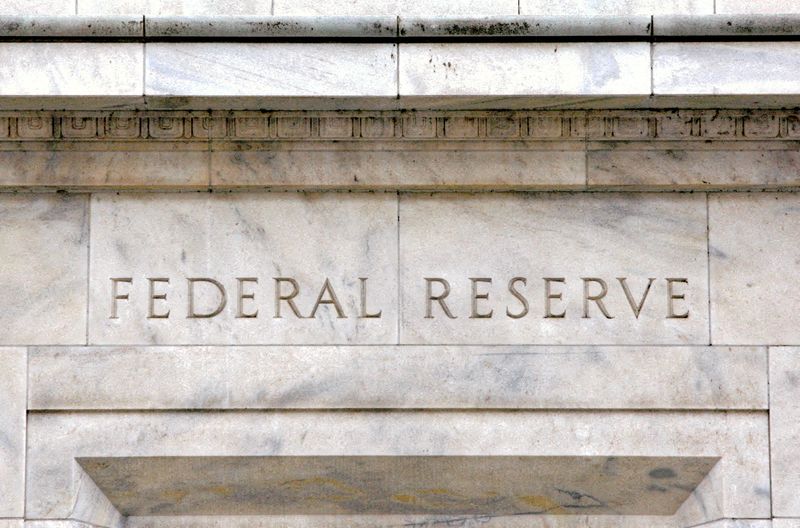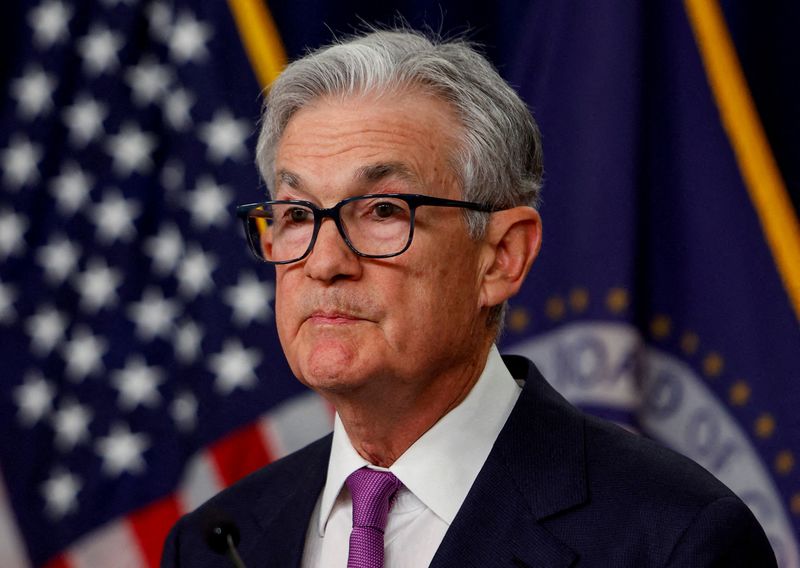By Michael S. Derby
(Reuters) – Two years after the presidents of the Dallas and Boston Federal Reserve banks left their jobs amid revelations they had traded on financial markets while helping to set monetary policy, an internal watchdog has yet to finish a probe into a scandal that has clouded the U.S. central bank’s reputation.
That’s left some lawmakers in the U.S. Congress, as well as outside experts, incredulous over the state of an inquiry they argue should have been wrapped up long ago. But there has been progress: While several legislative efforts to overhaul central bank ethics and increase transparency have made little headway, the Fed sharply clamped down on how and when its officials, top staff and family members can invest.
On Oct. 4, 2021, Fed Chair Jerome Powell asked the central bank’s Inspector General (IG) to look into the controversy that erupted after it was disclosed that Boston Fed President Eric Rosengren had traded real-estate securities and Dallas Fed President Robert Kaplan had traded millions of dollars of individual stocks in 2020, even as the Fed undertook a rescue of the U.S. economy and financial markets with massive purchases of Treasuries and housing-backed bonds.
That probe later expanded as other concerns about officials’ financial activities emerged, but exactly two years later, IG Mark Bialek has not yet submitted a final report.
“The Fed’s watchdog has failed” at every stage of its investigation so far, Democratic Senator Elizabeth Warren said in an interview. Republican Senator Rick Scott said the lack of resolution “is unfortunately another example of how the Fed has not, and will not, hold anyone accountable for their actions.”
Peter Conti-Brown, a professor at the Wharton School of the University of Pennsylvania, said “the IG has just flubbed this, and that invites all kinds of theorizing, most of which will not be drawn in the Fed’s favor.” He added that “there’s a good reason why we have not gotten a more thorough report about the Reserve Bank presidents’ activities around these trades, or there isn’t. If there’s a good reason, we should know what it is.”
Bialek’s office declined to comment about the state of the investigation.
UP IN THE AIR
The IG cleared Powell just over a year ago of what the central bank chief had said were accidental trades that happened too close to monetary policy meetings. It also cleared Richard Clarida, the Fed’s former vice chair, over how he reported his own trades.
But at the regional level, the IG has yet to weigh in on the trading activities of Rosengren, Kaplan and current Atlanta Fed President Raphael Bostic. Rosengren left the Boston Fed in late September of 2021 and Kaplan followed about a week later.
Both Rosengren and Kaplan have said they followed the Fed rules that governed trading at the time, and their disclosures were approved by Fed lawyers. Neither responded to questions from Reuters about their interactions with the IG probe.
Bostic acknowledged last year that he had inadvertently made financial trades during forbidden periods and noted more such issues in June of 2023.
The Atlanta Fed said the IG “has been in contact with President Bostic since the investigation was initiated, but since it is ongoing, we don’t have any additional comment.”
The most concrete response to the controversy to date has come from the Fed itself. It tightened rules in early 2022 around officials’ investing, sharply limited what financial assets policymakers, top staff and their families could own and clamped down on when they could make transactions. The Fed also said earlier this year that it would implement recommendations from the IG to ensure compliance with the new system.
Conti-Brown praised the central bank’s new ethics regime as likely the best in government, which he said casts the IG’s work in an even worse light. “The Fed has it within itself to be serious about these issues. And I don’t know why the IG is not handling this in a more serious way.”
INDEPENDENCE
Warren and Scott see Bialek, who has been in his job since 2011, as a compromised watchdog because the IG is appointed by the Fed chief, a built-in conflict of interest in their view.
They have proposed legislation that would make the Fed IG position a presidential appointment requiring confirmation by the Senate, something Bialek has publicly opposed.
During a hearing in the Senate in May, Bialek said the Fed had never interfered in his work. He also pushed back on legislators’ assertions that his investigation of Powell and Clarida had been superficial.
He noted that the ongoing probe into the trading activities of Rosengren and Kaplan limited what he could say about his methods, promising that a fuller accounting of how his office has investigated the matter would be forthcoming once the process was complete.
Warren said she’s still holding out hope the IG overhaul bill she proposed with Scott will move forward. Since its introduction last spring, however, it has attracted only half a dozen other co-sponsors and has not been acted upon by the Senate Banking Committee to which it was assigned and where Warren is a member.
“There’s been a long tradition in the Senate of hands off on the Fed. That’s how a culture of corruption first takes root and starts to grow,” Warren said. “Now that we’ve seen that certain lapses have made it into the public view, we’ll make significant changes so that those kinds of mistakes never happen again.”
(Reporting by Michael S. Derby; Editing by Dan Burns and Paul Simao)

